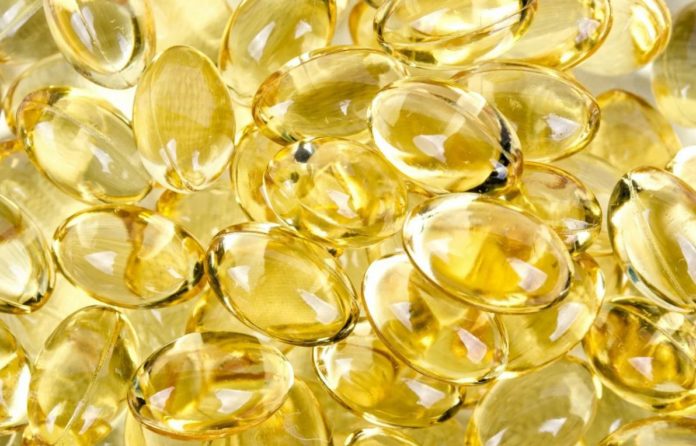It is essential to keep the body in perfect condition, but a large part of the population has low levels of Vitamin D. This, coupled with its potential effect against covid, has triggered its consumption. What is its real importance?
Vitamin D is going through one of its best moments. For a long time, slowly, but without pause, science has been accumulating evidence about this -more than a vitamin- almost a hormone, in such a way that without realizing it, it has gone from being known exclusively for being the ‘guardian’ of the whole body: heart, skin, immune system, endocrine system, etc.
But, without a doubt, interest in vitamin D supplements in recent months has exploded as a potential shield against covid-19. Its protective effect is associated with a stronger immune system and the prevention of respiratory infections. In addition, different studies have detected very low levels of it in severe covid-19 patients.
Thus, all the elements have been aligned in its favor to make it ‘the fashionable vitamin‘.
Are consumer expectations met?
Doctors and researchers have collected their findings in many scientific articles and, how could it be otherwise, results are for all tastes and change over the months. One of the first reviews, published in May 2020, is the Center for Evidence-Based Medicine, University of Oxford; Led by Dr Joseph Lee, his conclusion was: “We found no clinical evidence for vitamin D in covid-19. Until the date of the search (April 23), there was no finding that vitamin D deficiency predisposes to covid-19, nor supplementation studies that confirm its value in preventing or treating the virus”.
But these results must be taken with extreme caution.
Joseph Lee himself has admitted that he has not updated that review and, therefore, says: “I do not know of any evidence that supplements are beneficial, or who they may favor.”
- Brief Anger Hampers Blood Vessel Function Leading to Increased Risk of Heart Disease and Stroke – New Study
- New Blood Test Pinpoints Future Stroke Risk – Study Identifies Inflammatory Molecules as Key Biomarker
- Enceladus: A Potential Haven for Extraterrestrial Life in its Hidden Ocean Depths
- New Experiment: Dark Matter Is Not As ‘DARK’ As All We Think
- Scientists in Fear of This New Predator From Red Sea Eating Native Species in Mediterranean
Locked up and without sun
The immunologist puts on the table a reality common to many developed countries: a large part of the population, of all ages, has low levels of vitamin D, and according to an expert: “In my clinical practice I observe a high percentage of patients with deficient and insufficient levels of vitamin D, below 30 ng/mL and most have suboptimal levels between 30 and 50 ng/mL”.
Let’s put in simple words. We live and work in closed spaces and have little exposure to the sun – the sun’s rays are necessary for the synthesis of vitamin D3 in the skin, which is the main way to obtain the vitamin required by the body and when we do, we use protectants to prevent melanoma.
As a result, Normal vitamin D levels in the blood of the population have fallen dramatically. Different studies show that the prevalence of vitamin D deficiency in developed countries is between 40 to 60% of the population, and reaching more than 80% of the elderly.
Joseph Lee points out that in the UK, vitamin D deficiency is also widespread among citizens, and in particular in people with chronic diseases, “which does not mean that this is the cause of the pathologies or that supplementation can reverse them“. For this reason, “in the UK vitamin D supplements are routinely recommended, but not for covid-19.”
Dietary intake
On this point, a new controversy has arisen. Despite this general recommendation to take vitamin D, a new British study once again rules out the benefit of administering high doses of vitamin D (greater than 4000 IU) to prevent or treat pandemic disease, and discourages supplements and warns of the serious consequences of overdose.
Instead of supplements, Professor Judy Buttriss, Managing Director of the British Nutrition Foundation, advocates following the guidelines of the English Public Health guide, according to which supplements should be limited to ’10 micrograms a day during the winter and throughout the year if the outdoor exposure time is limited. On the contrary, it clearly advocates diet: “Vitamin levels in the body can also be supplemented through a nutritionally balanced diet that includes foods that provide the vitamin, such as oily fish, red meat, egg yolks, and fortified foods like cereal for breakfast.”
- Brief Anger Hampers Blood Vessel Function Leading to Increased Risk of Heart Disease and Stroke – New Study
- New Blood Test Pinpoints Future Stroke Risk – Study Identifies Inflammatory Molecules as Key Biomarker
- Enceladus: A Potential Haven for Extraterrestrial Life in its Hidden Ocean Depths
- New Experiment: Dark Matter Is Not As ‘DARK’ As All We Think
- Scientists in Fear of This New Predator From Red Sea Eating Native Species in Mediterranean
Appropriate recommendations?
The solution is clear: sun and adequate diet to have good levels of vitamin D. But reality shows that it is not the trend followed by the population, and the health authorities know it, and that is why some promote the fortification of some foods.
After comparing all opinions, what are the messages?
- Much of the population has suboptimal levels of vitamin D, as a result of poor exposure to the sun and a diet lacking in foods that contain it.
- A good level of vitamin D in the body promotes a stronger immune system.
- There is no scientific consensus on the benefits of taking vitamin D supplements to protect against covid-19.
